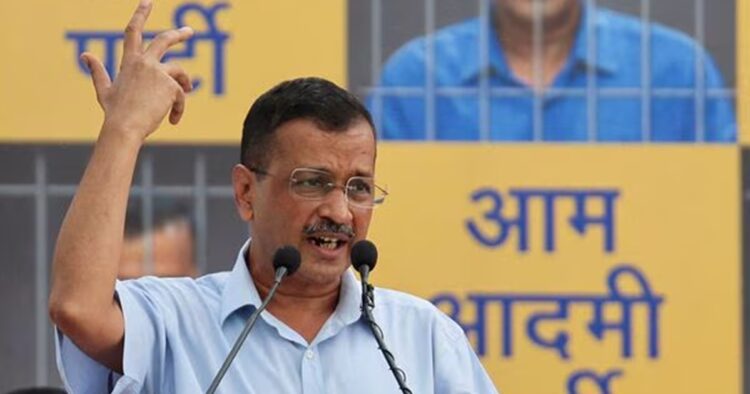On Friday, the Delhi High Court decided to temporarily halt a trial court order that granted bail to Chief Minister Arvind Kejriwal. This decision comes after the Enforcement Directorate (ED) approached the High Court to challenge the bail granted to Kejriwal in a money laundering case connected to an excise scam.
Three months ago, Arvind Kejriwal was arrested by the ED on charges of money laundering related to the Delhi excise policy scam. This scam is also being investigated separately by the Central Bureau of Investigation (CBI). Since his arrest on March 21, Kejriwal has been in custody at Tihar Jail. He was briefly released on interim bail last month to campaign for the Lok Sabha elections but surrendered back on June 2.
Delhi excise policy case | ASG SV Raju representing ED tells Delhi High Court that the trial court order has not yet been uploaded and conditions unknown.
ASG Raju informs Delhi HC that the probe agency has not been given full opportunity to oppose the bail application of Delhi…
— ANI (@ANI) June 21, 2024
The Enforcement Directorate has accused Kejriwal of directly creating the now-canceled Delhi excise policy. According to the ED, this policy was designed to favor a group referred to as the ‘South Group’. The ED claims that this group received unrestricted access and undue advantages, including stakes in wholesale businesses and multiple retail zones. In exchange, they allegedly paid Rs 100 crore to leaders of the Aam Aadmi Party (AAP).
The Delhi High Court stated that the trial court’s order to grant bail to Kejriwal will not be enforced until the High Court has heard the case. This decision was made after the ED argued that the trial court’s process was flawed and that the public prosecutor was not given a proper chance to oppose the bail.
ALSO READ: “Arvind Kejriwal Granted Bail: AAP’s ‘Satyamev Jayate’ Claim Criticized by BJP”
Additional Solicitor General S V Raju, representing the ED, requested a stay on the trial court’s bail order. He argued that the order was issued hastily and without giving the ED enough time to present their case. Raju mentioned that the trial court rushed the proceedings, limiting his arguments to just half an hour and not allowing time to file written submissions.
He emphasized the seriousness of this procedural lapse, citing Section 45 of the Prevention of Money Laundering Act (PMLA), which mandates that the public prosecutor must have an opportunity to oppose bail.
The High Court has indicated that the case will be listed for hearing once the necessary documentation is in order. This pause on the trial court’s bail order means that Arvind Kejriwal will remain in custody until the High Court makes a further decision on the matter.

















Comments